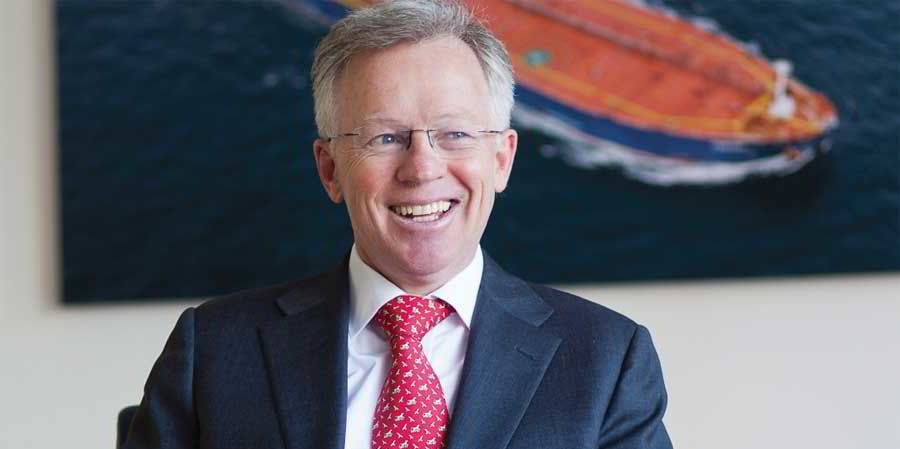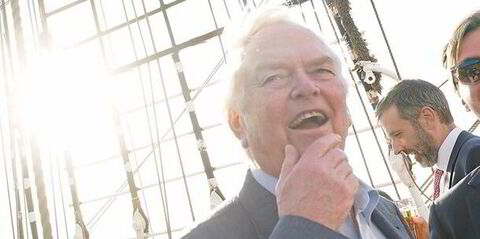Euronav chief executive Paddy Rodgers has again thrown his weight behind further consolidation in the VLCC market during a week that saw the third fleet sale of the year come to light.
With DHT Holdings set to gobble up the Samco Shipholding fleet in a $570m move (see stories, page 9) — joining a trend set by Euronav and General Maritime Corp (Genmar) in early 2014 — Rodgers believes secondhand tankers offer the best option for owners.
Speaking to TradeWinds on the wings of the TradeWinds Shipowners’ Forum in Athens, he said: “This market can be good so long as it is in fewer and fewer hands.”
Euronav has persistently spoken out against the ordering of eco VLCCs in an oversupplied market, where Rodgers says “the stupidest shipowner sets the rate for the smartest shipowner”.
Rodgers told the Forum: “John Fredriksen used to say ‘the most dangerous place in the world for a shipowner is the shipyard’.
“The point is how bad can it get? Well, if you overbuild the market and you have excess supply to demand, it can get as bad as you like for as long as you like.
“So do not get confused and think there is any advantage to having a new ship if your new ship is the ship which makes ships long and cargoes short. You all get killed.”
Rodgers told delegates that while many investors have been tempted by VLCC newbuildings since last autumn, he felt secondhand tankers were a better bet
“If you bought a newbuilding VLCC a year ago, you paid $90m for it,” he said. “Apparently it is fuel efficient. It might make a few thousand dollars more. I could buy two secondhand vessels of five to seven years old for the same price. That means when the market goes up, I get double the money.”
Richard Fulford-Smith of RS Platou was not entirely convinced by Rodgers’s argument.
“The problem is, Paddy, if I go and buy two secondhand ships and fix them at your rates at the moment, I lose $1m per month, particularly if I have spent half my time waiting,” he said.
“So, actually, there is a point in time where there is a positive discount to having a ship in the water but you do not want it because you cannot generate revenue.”
Not that Fulford-Smith is a fan of piling into newbuildings either, suggesting almost every VLCC built before 2000 needs to be scrapped to balance the market based on the current orderbook.
“The problem we have now is we know shipbuilding prices are going to continuously come under pressure as long as we have shipbuilding capacity at a vast surplus in specific areas,” Fulford-Smith said.
“Of course, poor old Paddy has got VLCCs coming out of his ears from shipyards, which is going to be a continuing theme so long as people have enthusiasm for the idea that we are going to get back to a worldscale 100 market and we are all going to make squillions.
“Well, it is just not going to happen.”



